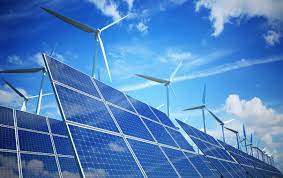Publisher: Maaal International Media Company
License: 465734
Arab countries increase their renewable energy capacity by 57% in a year
اقرأ المزيد
Arab countries increased their renewable energy capacity by 57% in the period from mid-2022 to mid-2023, reaching 19 gigawatts.
According to a new report by the Global Energy Monitor, the Arab countries in the Middle East and North Africa region, published by Reuters, still need to multiply this capacity 20 times from renewable energy sources to replace gas-based energy.
The report said, “The renewable energy capacity that was added that year, although it is a step forward in a region that is one of the most important centers of the fossil fuel sector, is relatively unambitious compared to other regions, and its percentage is small in light of the huge role of oil and gas in the region.”
The report indicated that the extent of progress in the field of renewable energy in the region is worrying, given that it needs to replace electricity generation capacity from gas and oil stations, which the report indicated is 343 gigawatts.
He added, “All but two countries in the Middle East and North Africa region have increased their plans for wind and solar energy, as eight countries have future capacity that is at least three times what it was 12 months ago.” The future capacity is the projects that have been announced, or those that are in the pre-construction stages or are being constructed.”
“The increases in wind and solar energy that year are a step in the right direction for the region, but getting rid of oil and gas is still a long way off,” said Cassandra O’Malia, director of the Global Solar Project at the Global Energy Observatory.
She added, “The problem is that the region’s path towards achieving a green economy relies heavily on hydrogen exports, which is an unproven technology and not designed to deal with the issue of obtaining energy or eliminating carbon emissions.”









